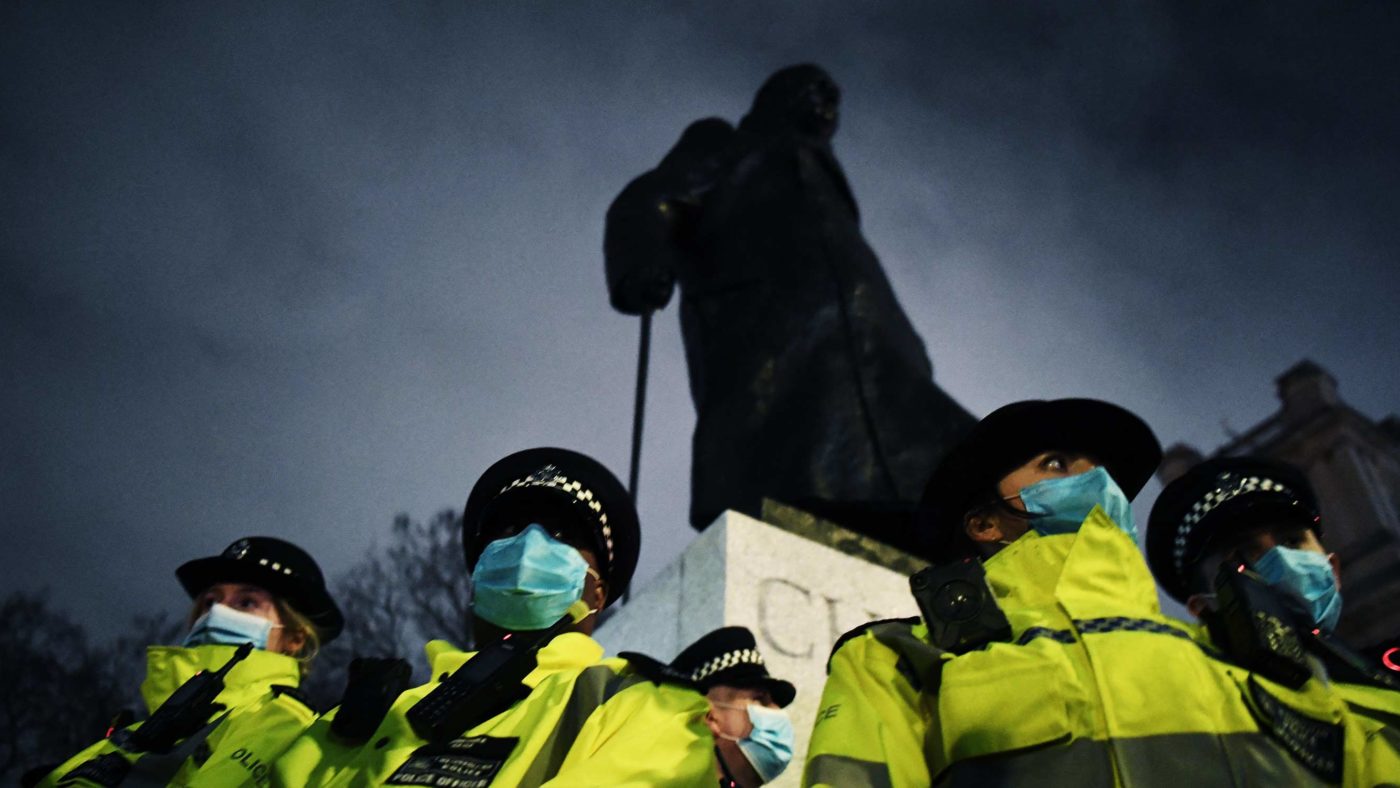Events over the weekend put a spotlight on the thorny issue of the proper relationship between government and the police.
The aftermath of the clashes as the Metropolitan Police dispersed a vigil for Sarah Everard saw an unedifying row over whether or they were accountable in this particular case to the Home Secretary or the Mayor of London – and thus whether Priti Patel or Sadiq Khan is ultimately accountable to the public for their conduct.
Then there was the outcry over the text of the Government’s new Police, Crime, Sentencing and Courts Bill (‘PCSC Bill’), which is intended to give the police greater scope to combat disruptive protest tactics of the sort deployed by Extinction Rebellion. It does this in part by expanding the definition of “serious harm” in the relevant legislation to compass “serious inconvenience” and “serious annoyance”, which critics allege is an unconscionable infringement of the right to protest.
It’s unlikely that this will trouble the great British public, which cheered as XR activists were dragged from the roofs of trains and during the 2011 riots polled overwhelmingly in favour of every single hard-line public order measure YouGov thought to test save for live ammunition, which was backed by a measly one in three voters.
But it isn’t obvious that new legislation alone will solve the problem. Expanded police powers become problematic if they are exercised on the basis of obvious double-standards, and critics on both the left and the right are correct to press the Met on its decision to try and disperse the women on Clapham Common whilst ‘facilitating’ Black Lives Matter protests over the summer.
Nor are new powers relevant if the institutional culture inside the police is stacked against wielding them. Those eye-popping 2011 poll results came after days in which the police were seen by the public to be failing to act, prioritising the wellbeing of the rioters over the protection of property and the preservation of order.
We saw the same attitude on display over the toppling of Edward Colston, which – whatever the merits of the statue as a public installation – was an act of vandalism. Whilst most people might now agree about removing it, it should not fall to officers on the ground to make essentially political decisions about which public works warrant police protection.
This presents the Government with a difficult balancing act. Stray too far beyond enabling legislation, and you risk politicians being seen to transgress the ‘operational independence’ of the police. But exclude the operational conduct of the police from political oversight, and they are no longer democratically accountable.
But there is a compromise between the PCSC Bill and having Patel personally ordering cavalry charges in Parliament Square: institutional reform. The events of the weekend have once again made the case for taking riot policing away from the Metropolitan Police.
One of the main issues blurring the lines of accountability for the Met is that it serves simultaneously as London’s local constabulary whilst also discharging several national functions in areas such as counter-terrorism. These could logically be hived off into one or more specialist forces, leaving the Met to discharge its regular functions as a normal constabulary.
If the Home Office really wanted to get a grip on public order policing, they could take the existing Territorial Support Group (TSG) and use it as the basis for a new, nationally-organised riot-control force, as I first suggested last summer.
Such a ‘reset’ would give Ministers the chance to set up a new institution, with a new internal culture and leadership shaped by a narrow and coherent set of operational responsibilities – it could also provide a test-bed for ideas such as military-style outside recruitment to ‘officer ranks’.
This would also allow the different bodies responsible for community and public order policing to develop different profiles and relationships with the public, each better suited to its role, rather than expecting one force to wear two badly mismatched hats.
The legislation establishing such a force could also set out, non-exhaustively if need be, the process through which it could be deployed and the criteria which would justify such deployment (which could be based on those set out in the new PCSC Bill).
If the Government had a formal role in the decision to hand over responsibility in a given situation to the public order police, it could provide a legitimate level of civilian oversight to the top-level response to a crisis whilst ensuring that operational decisions continue to be made by the police themselves. Ministers would simply call in a different, more specialised but equally independent constabulary when they, as the public’s representatives, felt it necessary.
The creation of a specialist public-order police force would inevitably elicit some shroud-waving about the ‘Peelian Principles’. But not only would this simply be a rational reorganisation within the existing structures of British policing, but such claims actually badly misrepresent what Peel actually said.
Contra the impression you might get from some commentators, they are not and have never been shorthand for feeble law enforcement. ‘Policing by consent’ means the consent of the broad public – the same public behind that ferocious polling and which today backs a ban on pandemic protests – not the rioters and lawbreakers. In fact by allowing disorder to take place – especially when it leads to mounting public support for deploying the army – senior officers are themselves directly violating Peel’s Principles of Policing.
Proper separation of discreet functions, clearer lines of political accountability, and the chance to create a new institutional culture? The Home Secretary should look beyond legislation, and put police reform on the agenda.
Click here to subscribe to our daily briefing – the best pieces from CapX and across the web.
CapX depends on the generosity of its readers. If you value what we do, please consider making a donation.


